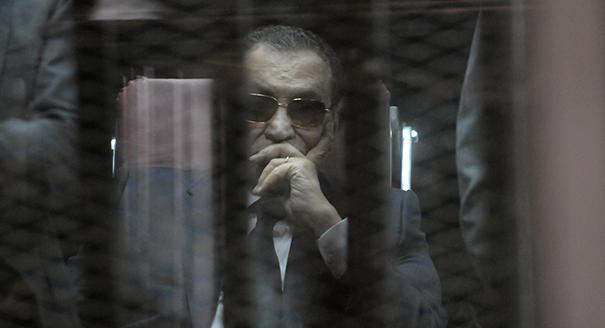What Happened?
Egypt’s former president Hosni Mubarak has died at 91 and was buried in a military funeral on February 26. Many Egyptians are reflecting on the legacy of his 30 years in power, and perhaps most importantly are comparing his rule to that of the current president, Abdel-Fattah al-Sisi. While there are a large number of people who have not forgotten the repression, stagnation, and corruption that characterized much of the Mubarak era, there has been a recent trend of nostalgia among others who say they are even worse off under Sisi.
Why Is It Important?
On the surface, arguments about Mubarak’s legacy—was he a source of regional stability who should never have been overthrown, or a corrupt autocrat who deserved harsher punishment than he received?—appear to reflect the ongoing polarization among Egyptians. In general, praise for Mubarak centered on his role in international and regional affairs, whereas critics focused on how he ran affairs inside Egypt. Leaders around the Middle East offered fond remembrances of Mubarak, and the announcement of his death by his elder son ‘Alaa on Twitter drew more than 40,000 replies, mostly sympathetic.
Meanwhile, journalists and activists noted with bitterness that the former president served only a relatively brief sentence for diverting millions of dollars in state funds to his family and was acquitted of complicity in the killing of more than 800 protesters during the 2011 uprising—while thousands of youths still languish in prison.
On a deeper level, these debates reflect a growing underlying agreement among Egyptians on two points: That the brief, chaotic attempt at a democratic transition after 2011 ended disastrously, and that most Egyptians are far worse off, economically, politically, and in terms of human rights, under Sisi than they were under Mubarak. There has been significant pro-Mubarak nostalgia building for several years, with 3.5 million people following a “I am sorry, Mr. President” Facebook page (the administrator of which was arrested in 2019) and 775,000 people following the ex-president’s son ‘Alaa on Twitter.
Sisi and his regime thus will have to thread the needle on handling Mubarak’s death and legacy. On the one hand, they will want to show respect for a fellow military officer who was in their eyes a legitimate president—unlike Mohammed Morsi, who came to office in 2012 in Egypt’s first free presidential election. When Morsi, who was deposed in a 2013 military coup, collapsed and died in a courtroom in June 2019, the Sisi regime ordered him buried secretly at night, and the brief coverage of his death on state-run media did not even mention that he had been president. Mubarak, by contrast, has received a military funeral. On the other hand, the regime is likely to have taken steps to control and contain any possible public expression of anti-Sisi sentiment around the funeral.
What Are the Implications for the Future?
While opposition to Sisi has always been strong in Islamist and revolutionary circles, it has been growing in the vast network of civilian officials, prominent families, and crony businesspeople whose loyalty Mubarak cultivated (and whose nests he feathered) over many years. While most initially supported Sisi as an antidote to the Muslim Brotherhood, Sisi has shown them indifference and even disdain, instead relying on the military itself as his main constituency.
In addition to the pro-Mubarak trends on social media, perhaps the clearest sign of opposition to Sisi from this group was the effort of two Mubarak-era military officials, former prime minister Ahmed Shafiq and former army chief of staff Sami ‘Anan, to challenge Sisi for the presidency in 2018. Neither was allowed to run, and ‘Anan was imprisoned for disloyalty.
Will the Mubarakists look for more opportunities to challenge Sisi? Their main vehicles for now are the late president’s sons, ‘Alaa and Gamal (once positioned to succeed his father), who served several years in prison for corruption. Perhaps by coincidence, the sons were acquitted in the last remaining legal case against them (for alleged stock market manipulation) just days before their father’s death. They might well be in the regime’s sights as potential vectors for opposition to Sisi among parts of society that once supported him.








